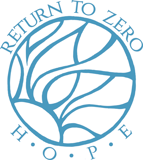
Twenty years ago, Carly, my only child, inexplicably died when I was 41 weeks pregnant. Looking back on those early months when I was reeling with grief, I could not envision a future where I would feel joy again. Not only had my baby died, but I'd ended the relationship with her father and lost the dream of motherhood. I'd felt like profoundly alone.
In my sorrow, I was determined to cultivate a connection with my daughter, and so I wrote her many letters. I also journaled more than I ever had which eventually became a source of comfort, and helped me make sense of my losses. With time, I learned to trust that waves of grief would come and go, and that I could survive them. Despite sometimes feeling like I’d been dealt a bad hand, I began to look for beauty in the world; hiking along a wooded trail among songbirds can still lift me out of a sad mood. Same with listening to music, reading, or watching my nieces and nephews make their way into adulthood. Carly is still very much a part of my life, and as cliché as it might sound, time helped me find ways to feel joy again.
After losing Carly two decades ago, I can see that time transformed the grief, and that grief transformed me. I had no choice but to build a new life for myself that excluded motherhood. While I will always mourn what could have been, I am fulfilled and grateful for what I do have: people to love including a husband, family, and friends; meaningful work; and the capacity to feel hope. I thank Carly for these gifts.
The loss of a baby is uniquely isolating. RTZ HOPE provides pathways to connect with others who have suffered similar losses, creating critical lifelines that can alleviate isolation.


